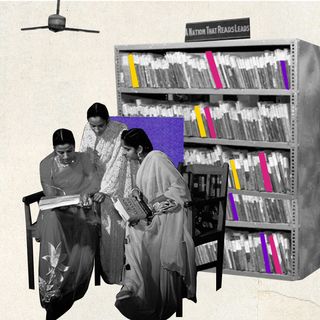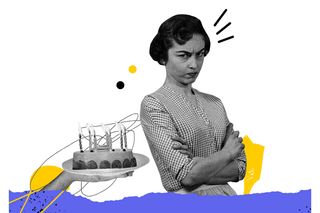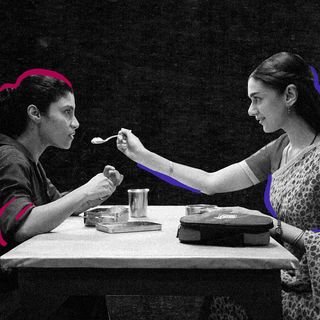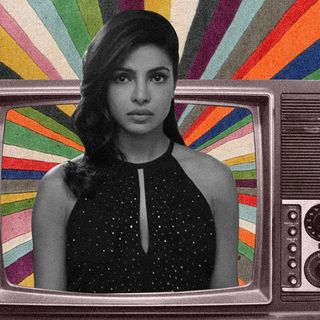
Is This Normal? “I Hate Surprises”
Surprises catch people unprepared and disrupt their routine; they also induce the feeling of losing control.

In this series, we dig into our strange phobias, fixations, and neuroses, and ask ourselves — Is This Normal?
I hate surprises — even the pleasant kind. They completely throw me off — not only leaving me awkward, confused, and unprepared; but also sweaty, shaky, and tensed, with an intense urge to use the washroom. These are all classic physical symptoms of anxiety, I realize. On top of the anxiety, surprises also feel like a violation of my consent — by assuming I would enjoy a specific thing on a specific day, without actually checking in with me. Essentially, surprises feel destabilizing and extremely uncomfortable — made worse by simultaneously having to pretend I like them so the surprise-givers don’t feel hurt.
Is this normal? Turns out, it is.
While some people love surprises, for many it can lead to a loss of equilibrium and focus. One reason for the latter is the sudden loss of control one feels over one’s life when one is forced into an unexpected circumstance. A sense of control often includes a sense of comfort, safety, and familiarity — and by taking control out of the equation, surprises suddenly put these accompanying feelings in jeopardy.
Surprises also bring about uncertainty, which impacts our ability to plan ahead, and in doing so, prevents us from preparing for the future, causing anxiety. “…uncertainty equals danger. If your brain doesn’t know what’s around the corner, it can’t keep you out of harm’s way,” Bryan Robinson, a psychotherapist from North Carolina, wrote in Psychology Today. That explains why surprises can sometimes feel like an ambush and induce so much stress. Moreover, if the plan is something I would have genuinely liked, a surprise takes away my joy of anticipating the event. The joy is supplanted for an emotional reaction, where my body is busy dealing with the stress of induced by the spontaneity of the event.
To alleviate anxiety, experts often advise combating uncertainty with routines, which are quite the opposite of surprises. “Modern life, increasingly defined by unpredictability, can be anxiety-provoking, and routines provide an anchor of predictability,” Marty Nemko, a career coach, explains the ‘soothing effect’ of routines. And surprises dislodge this anchor — by shattering one’s perception of what the day ahead looks like, and depriving them of the comfort they may have been drawing from the familiarity of their schedule.
Related on The Swaddle:
Is This Normal? “I Hate Being Tickled”
Moreover, surprises also catch people unprepared. And when we’re unprepared for an event, like exams, the predominant feeling is often stress. “Your worst type of surprise would be what you see happening in movies — when someone is surprised with a holiday. What would you pack? How would you get everything together? What about your travel injections,” an article on Metro reads.
There can be different types of surprises, which may have varying effects. Predictable surprises, for instance, may have a more controlled impact — simply because they don’t pose as large a threat to routines, and don’t completely catch people unawares. A 2020 study found the greatest shifts in brain activity were the most triggered by sporting outcomes that contradicted individual spectators’ beliefs about which team would win — in other words, which outcome startled them the most. “There’s a lot of nuance — it’s not like ‘surprise is surprise is surprise is surprise.’ Different kinds of surprises have different effects that we observed in different brain systems,” James Antony, a neuroscientist at Princeton University in the U.S., who co-authored the study, said in a statement.
Another kind is smaller surprises, ones that don’t seem like they can throw people off their schedules entirely. So, are these less distressing? There may not be an absolute, straightforward answer to that. Just like surprises exist on a spectrum, according to Antony — so do people and their tolerance of surprises. While people living with ADHD and OCD, or those existing on the autism spectrum, are considered to have a stronger dislike of unpredictable events, anxiety itself can make people hate surprises.
While it is heartening to know I’m not the only one who hates surprises, I often wonder: why are surprises so ubiquitous then? The internet is brimming with stories of people who can’t stand surprises, but have to pretend they’re having a blast at a party they never consented to being at. So, what if we just start asking people if they actually prefer a surprise — instead of making them suffer through an evening they would have enjoyed, if only, they were given a heads up.
Devrupa Rakshit is an Associate Editor at The Swaddle. She is a lawyer by education, a poet by accident, a painter by shaukh, and autistic by birth. You can find her on Instagram @devruparakshit.
Related


In ‘Ajeeb Daastaans,’ Caste Compels People To Lead Secretive, Manipulative Lives
